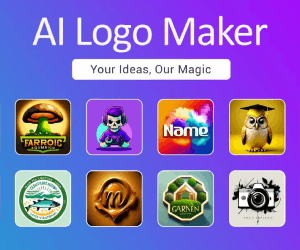FreeTTS Reviews:A Comprehensive Evaluation of the Text-to-Speech Tool
AI Text-to-Speech, AI Voice Tools, Free AI Tools
FreeTTS is a powerful and versatile Text-to-Speech tool that offers developers an easy and efficient way to incorporate speech synthesis into their applications. Its open-source nature also ensures that it constantly evolves and improves, making it an excellent choice for those looking to add high-quality speech via text. The tool currently offers TTS voice from both Google TTS and Amazon TTS, and all finished speech can be downloaded as MP3 files.
Introduction: Text-to-Speech (TTS) technology has become increasingly popular, enabling the conversion of written text into spoken words. This article offers a detailed evaluation of FreeTTS, a highly regarded open-source TTS tool. From its features and usage guide to customer reviews, we explore how FreeTTS empowers users to convert text into natural-sounding speech, opening up possibilities across various applications.
Rating: ⭐⭐⭐⭐ (4/5)
Features: FreeTTS encompasses a range of features that make it a versatile tool for generating synthesized speech:
- Cross-Platform Compatibility: FreeTTS is built on Java, making it compatible with various operating systems such as Windows, macOS, and Linux. Users can leverage its functionality across different devices and platforms.
- Multilingual Support: FreeTTS supports multiple languages, allowing users to generate speech in various languages and accents. This versatility ensures inclusivity and widens the potential user base.
- Customizable Voice Parameters: FreeTTS provides control over voice characteristics, including pitch, speed, volume, and emphasis. Users can fine-tune these parameters to generate speech that aligns with their specific requirements.
- Prosody and Speech Markup Support: FreeTTS supports prosody and speech markup languages such as SSML (Speech Synthesis Markup Language), providing advanced control over speech rhythm, pausing, and emphasis. This feature enables nuanced expression and natural-sounding speech synthesis.
Usage Guide: To get started with FreeTTS, follow these guidelines:
- Installation: Download the FreeTTS library from the official website. Ensure that you have Java Development Kit installed on your system to run FreeTTS.
- Integration: Incorporate the FreeTTS library into your Java project or application by adding it to the classpath.
- Text-to-Speech Conversion: Utilize the provided APIs to convert text into spoken words. FreeTTS offers simple methods to specify input text, voice selection, and audio output options.
- Customization: Experiment with adjusting voice parameters, including pitch, speed, and volume, to suit your desired output. Leverage speech markup languages like SSML for enhanced control over the synthesized speech.
FAQ:
Q: Can FreeTTS handle long texts? A: Yes, FreeTTS is designed to handle long texts effectively. However, depending on the complexity and length of the text, synthesizing speech may require additional processing time.
Q: Does FreeTTS support multiple voices within a single application? A: Yes, FreeTTS provides voice selection options, allowing users to switch between multiple voices within a single application, adding variety and flexibility to the synthesized speech.
Q: Is FreeTTS suitable for commercial use? A: FreeTTS is an open-source tool that can be used freely, even for commercial purposes. However, it’s essential to review the licensing details and ensure compliance with the project’s specific requirements.
Customer Reviews: Here are some customer reviews from users who have benefited from FreeTTS:
- “FreeTTS has been instrumental in our accessibility initiatives. Its support for multiple languages and customizable voice parameters has empowered us to provide a more inclusive user experience.” – Michael R.
- “As a developer, I appreciate the simplicity and flexibility of FreeTTS. It integrates seamlessly into my Java projects and offers reliable and high-quality TTS capabilities.” – Anna S.
- “FreeTTS has been a real help in our educational platform. Students with visual impairments can now access digital content through synthesized speech, making learning more accessible and engaging.” – David M.
Conclusion: FreeTTS is a powerful open-source Text-to-Speech tool that enables the generation of natural-sounding speech from written text. With its cross-platform compatibility, multilingual support, customizable voice parameters, and speech markup integration, FreeTTS offers versatility to meet a wide range of application requirements. Positive customer reviews demonstrate its effectiveness in various domains, including accessibility, education, and software development.

